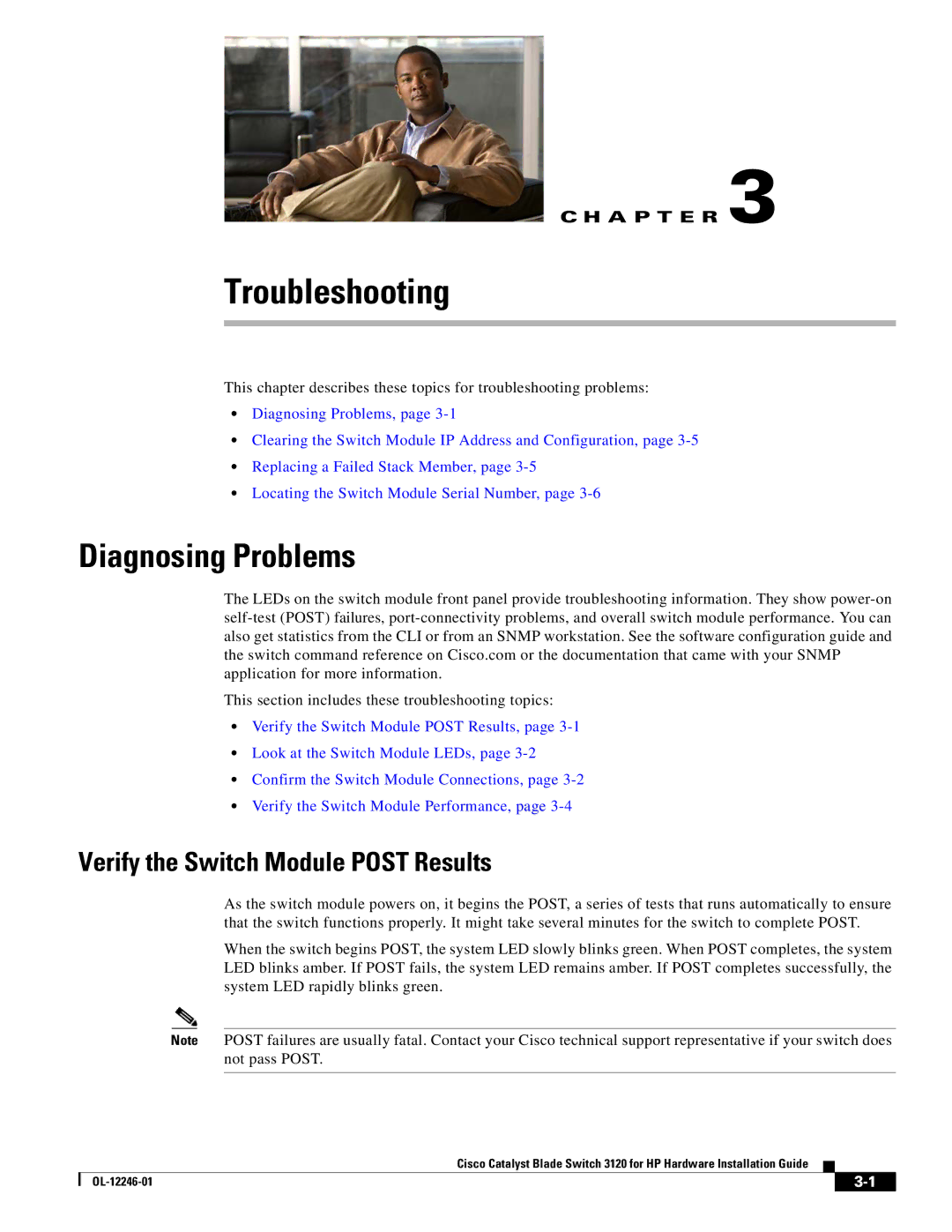
C H A P T E R 3
Troubleshooting
This chapter describes these topics for troubleshooting problems:
•Diagnosing Problems, page
•Clearing the Switch Module IP Address and Configuration, page
•Replacing a Failed Stack Member, page
•Locating the Switch Module Serial Number, page
Diagnosing Problems
The LEDs on the switch module front panel provide troubleshooting information. They show
This section includes these troubleshooting topics:
•Verify the Switch Module POST Results, page
•Look at the Switch Module LEDs, page
•Confirm the Switch Module Connections, page
•Verify the Switch Module Performance, page
Verify the Switch Module POST Results
As the switch module powers on, it begins the POST, a series of tests that runs automatically to ensure that the switch functions properly. It might take several minutes for the switch to complete POST.
When the switch begins POST, the system LED slowly blinks green. When POST completes, the system LED blinks amber. If POST fails, the system LED remains amber. If POST completes successfully, the system LED rapidly blinks green.
Note POST failures are usually fatal. Contact your Cisco technical support representative if your switch does not pass POST.
Cisco Catalyst Blade Switch 3120 for HP Hardware Installation Guide
|
| ||
|
|
